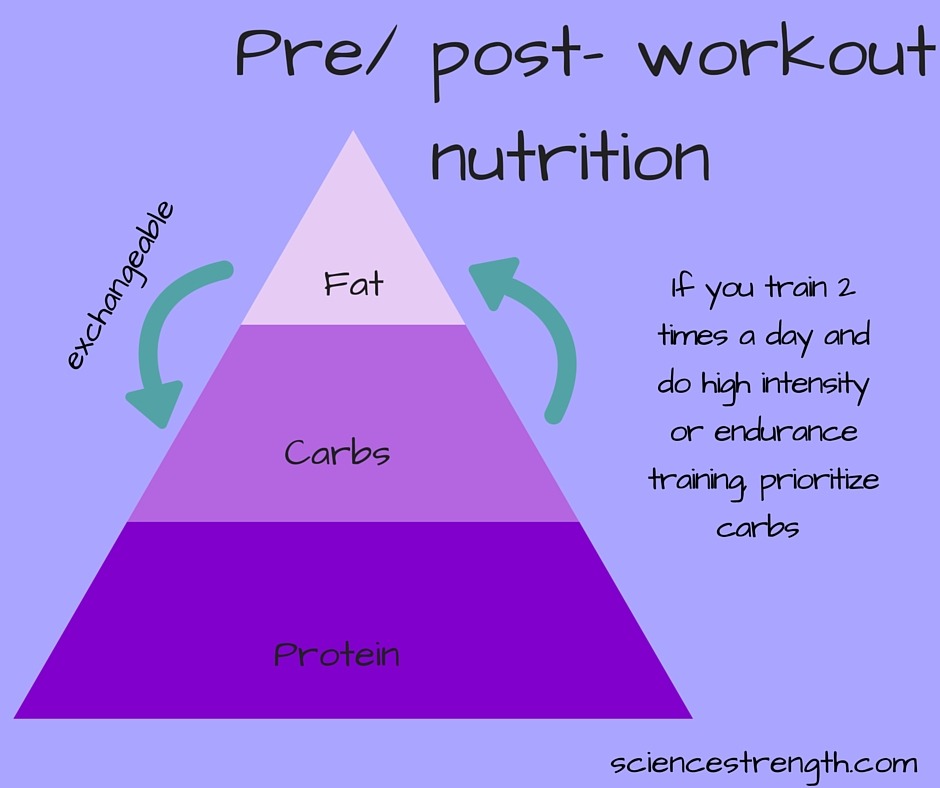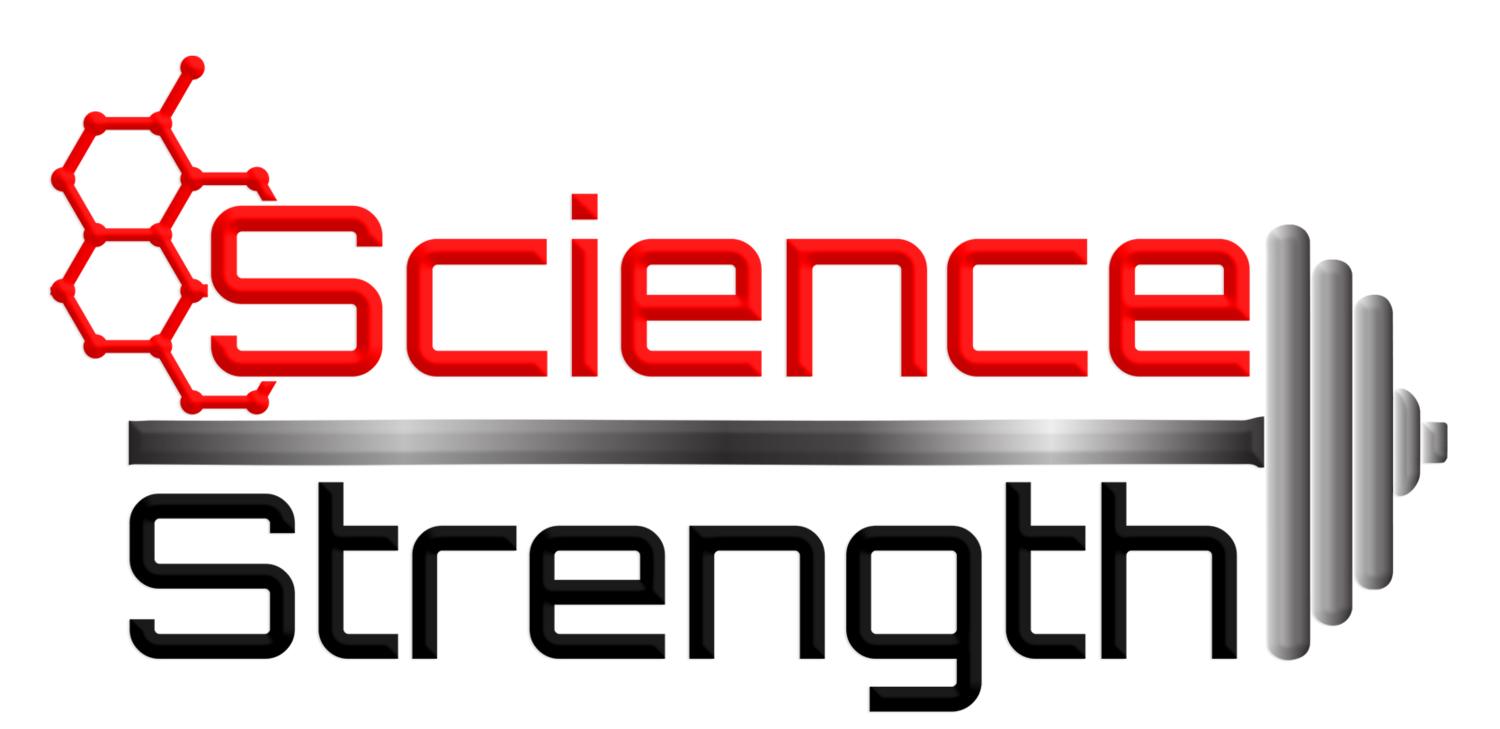When it comes to post-workout nutrition, the typical recommendation is eating protein and carbohydrates immediately after workout and to avoid fat and fiber. The theory is pretty simple:
Protein consumption is supposed to stop muscle protein breakdown and induce muscle protein synthesis.
The purpose of carbohydrate ingestion is to replenish glycogen stores and spike insulin (anabolic hormone) to promote muscle protein synthesis.
The general, the recommendation to avoid fat and fiber post workout, is based on the fact that these nutrients slow down the absorption of other nutrients. Slower carbohydrate uptake means smaller rise in blood sugar and less insulin release.
So far the theory… What about the practice?1
Consume carbohydrates to …
…replenish glycogen stores:
It makes sense to refill glycogen stores immediately after exercise for those, who train twice a day or have less than 8-hours between training sessions. This applies especially to endurance athletes. For strength athletes is fast glycogen replenishment of minor importance. Moderate volume high-intensity resistance training with 6-9 sets per muscle group was shown to reduce glycogen stores by less than 40%. Glycogen is usually replenished within 24 hours provided that daily energy needs are met.
…maximize the rate of muscle protein synthesis:
There is lack of data supporting the theory that the consumption of carbohydrates immediately after training enhances muscle protein synthesis (except after overnight fast). Meeting total daily carbohydrate needs seems to be by far more important than carbohydrate timing.
However, there is solid evidence that protein consumption after workout is beneficial for muscle protein synthesis. The question is how much protein and when?
If resistance training is performed after an overnight fast, it is important to consume protein and carbohydrates immediately after workout to transfer the body from catabolic to anabolic state.
If a protein-rich meal is consumed pre-workout, it has an influence on amino acid level in the blood stream during and after workout. For this reason, further protein ingestion immediately after workout is not required.
Protein consumption within 1-2 hours post-workout should be enough to maximize recovery and muscle protein synthesis.
However, if the last meal was 3-4 hours before training, consumption of at least 25g protein immediately after workout can be beneficial.
General guidelines
Consume 0.4-0.5 g protein per kg of lean body mass in both pre- and post-exercise meals to maximize muscle gains.
Pre- and post-exercise meals shouldn’t be more than 3-4 hours apart (5-6 hours for large mixed meals).
Special cases:
Influence of training status
Advanced trainees have to pay more attention to protein timing and type than untrained individuals. A protein source high in leucine was suggested to enhance protein synthesis in trained individuals (leucine is the essential amino acid that gives the signal to start muscle protein synthesis).
Influence of age
Some research suggests that elderly individuals exhibit ‘anabolic resistance’. For this reason, a higher post-exercise protein dose is required to achieve the same response to training in comparison to younger subjects.
Plant vs. animal protein sources
Plant protein sources have a slightly lower leucine content than animal proteins. For this reason, it is makes sense to consume a higher amount of plant protein (e.g. 45-50g rice protein) than recommended for animal protein, at least for resistance trained individuals.
It is likely that the total leucine intake is the significant factor for muscle protein synthesis and not the source. The upper threshold for optimal anabolic response is between 1.7-3.5g leucine. Overshooting (more than 3.5g leucine post-workout) doesn’t stimulate muscle protein synthesis to a higher extent.2
Beginners seem to benefit in the same way from an equal amount (25g) of either plant or animal protein supplement (pea or whey protein).3
What about fat?
There is no convincing evidence that fat impedes glycogen synthesis. Addition of 165g fat to post workout meal did not have a negative influence on muscle glycogen content 24 hours after depletion.1
The same applies for muscle protein synthesis. It is likely to be neither beneficial nor disadvantageous. Interestingly, a research study suggests that the consumption of whole milk post-workout results in increased utilization of available amino acids for protein synthesis compared to fat-free milk.4 It seems like fat post-workout is not that bad at all.
Bottom line
It is about your goal and type of training. If you are an endurance athlete or strength athlete performing very high volume glycogen depleting training sessions and your training sessions are less than 8 hours apart, then consume carbohydrates post workout. Protein should be consumed immediately after workout for fasted training or if the last meal was at least 3-4 hours before training session. Post-workout fat consumption seems not to harm or benefit.
In general, the daily total energy and nutrient intake is more important than the timing.

References:
